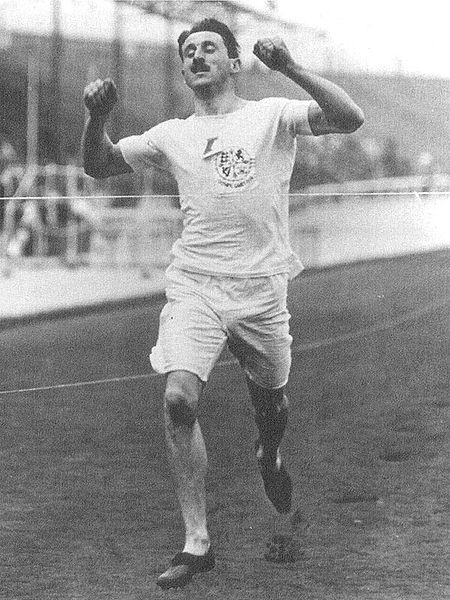Cadland (1825–1837) was a British Thoroughbred racehorse and sire. In a career that lasted from April 1828 to 1831 he ran twenty-five times and won fifteen races, with several of his wins being walkovers in which all of his opponents were withdrawn. In the summer of 1828 he ran a dead heat with The Colonel in the Derby, before winning the race in a deciding run-off. He went on to have a long and successful racing career, winning a further eleven races before his retirement, and developing a notable rivalry with his contemporary Zinganee. Cadland was disappointing as a sire of winners in England and was exported to France, where he was much more successful. He died in 1837.
Cadland and Jem Robinson. Painting by John Ferneley.
Cadland beats The Colonel in the deciding heat of the 1828 Derby as depicted in an aquatint by James Pollard.
Cadland by John Frederick Herring, Sr.
A walkover, also W.O. or w/o, is awarded to the opposing team/player etc, if there are no other players available, or they have been disqualified, because the other contestants have forfeited or the other contestants have withdrawn from the contest. The term can apply in sport, elections or other contexts where a victory can be achieved by default. The narrow and extended meanings of "walkover" as a single word are both found from 1829. In competitive rowing, it is known as a "row over", and may involve rowing the course.
Wyndham Halswelle won the 1908 Olympic gold medal for men's 400 metres running in a walkover. American John Carpenter was disqualified, prompting his teammates John Baxter Taylor and William Robbins to refuse to race in protest.




